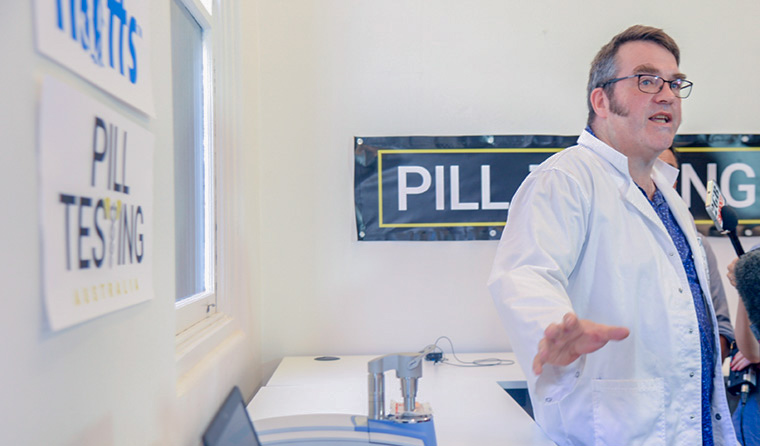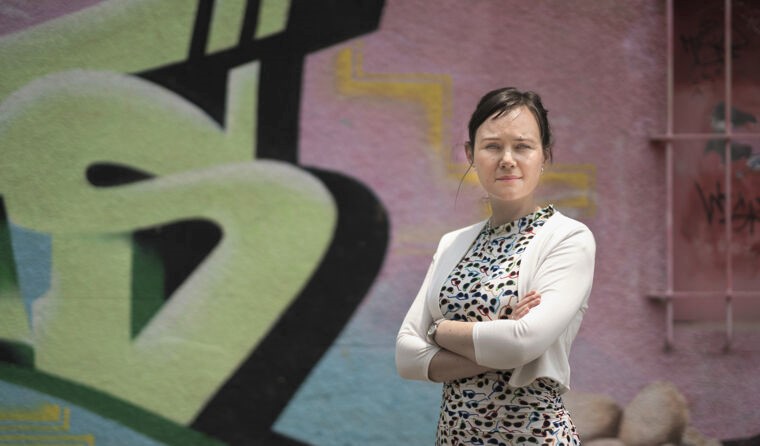News
Two-thirds of Australians support pill testing at festivals: Survey
Supporters hope public pressure will lead to policy changes, but opponents maintain ‘no pill is safe’.
 Young people, supporters of legalisation of marijuana, and those who do not attend church are most likely to express support for pill testing at music festivals.
Young people, supporters of legalisation of marijuana, and those who do not attend church are most likely to express support for pill testing at music festivals.
The majority of the Australian public supports pill testing at music festivals.
Those are the findings from the 2019 Australian Election Study survey, published on 22 November.
The survey of 2179 Australians found 63% of respondents support this measure and 21% oppose it, with few people taking the middle ground or not responding.
The survey also found that young people, supporters of legalisation of marijuana, and those who do not attend church are most likely to express support. Those who vote for one of the two main conservative parties are less likely to support this measure.
‘The results show that there is a high level of political polarisation surrounding opinions among both voters and political elites,’ the authors wrote.
‘This issue must be addressed if the policy is to be advanced as part of an overall harm-reduction approach to drug use.’
Dr Hester Wilson, Chair of the RACGP Addiction Medicine Specific Interests network, told newsGP she is not surprised by the finding that so many Australians support pill testing.
‘Because it makes sense,’ she said. ‘It’s sensible and we know that pill testing actually assists people to make safer choices.’
Dr Wilson says pill testing plays an important role in harm minimisation.
‘Ideally, young people would not take any dangerous substances, and that would include tobacco and alcohol as well as all illicit substances,’ she said.
‘But they do. So from a harm-minimisation point of view, we need to put things in place that prevent them from coming to harm.
‘We know from the coroners’ cases that happened last year that our young people were dying, and anything that we can do to decrease that risk, to help them make better choices, is a good thing.’
Associate Professor David Caldicott is an emergency physician with a special interest in toxicology. He led Australia’s first trial of pill testing sanctioned by a state or territory government in Canberra in 2018.
While he says the findings were expected, he is pleased to see such support. Associate Professor Caldicott hopes the findings help lead to policy changes.
‘I think public pressure does result in policy change eventually, but it can never be assumed … that it will automatically occur without that pressure,’ he told newsGP.

Pill testing advocate Associate Professor David Caldicott says there is no evidence to suggest the practice results in increased drug use. (Image: AAP)
Federal Liberal MP Mr Andrew Laming, an ophthalmologist, has a different take on the survey’s findings.
‘Two-thirds of Australians would support any intervention purporting to reduce pill-related deaths,’ he told newsGP via email.
Mr Laming does not believe pill testing at music festivals will happen ‘any time soon’ – and for what he considers good reason.
‘In festivals, I would exchange any pill for a burger voucher and remind every client that whatever a test finds, any pill can kill,’ he said.
‘That would save transporting equipment with flashing lights that can’t actually measure dose – despite their claims to the contrary – let alone accurately.
‘No pill is safe where you don’t know who takes it and how many of them and mixed with what.’
Mr Laming described people who queue for pill testing as ‘mostly connoisseurs and the curious’.
‘While those at greatest risk of death have pre-loaded, are cocktailing, and would be excluded from pill-testing for that reason in any case,’ he said.
‘All those questions of pill testers have been asked, and never answered.’
Associate Professor Caldicott welcomes such criticism. However, he says claims about the safety of pill testing misrepresent the process.
‘At no stage do the people who are providing pill testing claim that what we’re doing makes the process safe for consumers,’ he said.
‘In fact, we have a disclaimer at the point of testing and a verbal confirmation of that, that this does not make what you’re about to do safe.
‘The idea that … that’s what this is about represents a deep and fundamental misunderstanding of what the process is all about.’
Mr Laming says he is not against pill testing, per se.
‘I do support HPL chromatography testing next to a festival, but not inside,’ he said.
‘That makes precise testing at cost-recovery available, but allows police to do their job within a festival setting which should be drug-free.’
In 2019, newsGP reported that deputy leader of Queensland’s Liberal National Party, Tim Mander, echoed those sentiments.
‘We have to remember that these substances are illegal and they’re illegal for a reason,’ he said.
‘One pill can kill and we need to educate our young people that you don’t need to be on drugs to have a good time at a concert.’
Associate Professor Caldicott is accustomed to hearing opposing thoughts on pill testing, which commonly suggest the practice results in increased drug use.
He says there is no evidence of this idea and challenges opponents to show him any proof that pill testing encourages drug-taking.
‘There is of course no information,’ he said. ‘It’s a supposition on their part.’
Associate Professor Caldicott does admit, however, the question regarding whether pill testing increases drug-taking behaviour is a ‘reasonable’ one.
‘But the thing about reasonable scientific debate is that when your opinion is questioned, and is found to be wanting in scientific rigour, that’s the time probably to change your opinion,’ he said.
‘We’re very happy to address any questions that anybody has to put to us but, by the same token, those that engage in this debate probably should agree to be bound by the rules of scientific debate which is accepting the evidence.
‘I think that’s the big problem in Australia; there’s now quite a lot of evidence – both international and locally generated out of the ACT – which refutes many of the allegations being made by opponents of pill testing and in a very Trump-esque sort of way is denounced as “fake science” or “fake news”.
‘The reality is what the reality is, and science speaks to science.
‘While I, like Voltaire, will defend to my death the right of other people to have their opinion on this issue, I certainly don’t think people should be implementing public health policy on the basis of non-science opinion.’
Dr Wilson is also familiar with the argument that pill testing encourages taking such substances.
‘I know that [NSW Premier] Gladys Berejiklian is saying it encourages people to take drugs,’ she said.
But Dr Wilson also disagrees with this argument, saying festivalgoers are likely to take drugs regardless.
‘And if we can support them to actually come to less harm, that just makes sense,’ she said.
Dr Anna Olsen is a senior researcher at the Australian National University medical school. She told newsGP this survey is a ‘great addition’ to the evidence base on pill testing in Australia and outlines the public support for this measure.
‘It’s definitely building on some anecdotal evidence that we have around support for harm-reduction initiatives like this,’ she said.
‘I think this is a really clear indication that there is a broad public support for harm reduction in Australia.’

Dr Anna Olsen says the new research is a ‘great addition’ to the evidence base on pill testing in Australia.
Dr Olsen says clinicians should pay specific attention to the fact younger people often support pill testing.
‘That’s certainly something that GPs can take away [from this survey],’ she said.
‘The younger generation that are coming to see them for healthcare may have different views on illicit drugs and health to what they [as GPs] hold, and understanding that and appreciating that is very important for providing care.’
Dr Olsen says the fact young people support pill testing shows that they understand the associated health risks.
‘So being able to provide healthcare in that context should be considered a positive; that people are willing to talk about the health implications,’ she said.
While Dr Wilson supports pill testing, she says it should not be considered a standalone harm-minimisation measure.
‘There does need to be the capacity for young people to access treatment if they need it and for pill testing to be set up in a way that young people are not going to be harassed by police or police dogs,’ she said.
‘What we know is that young people generally, if they know that the drugs they’ve got are not safe, they will dispose of them and will also encourage their mates to do the same.’
Dr Wilson says GPs are in a position to discuss substance-use with their patients.
‘To be able to ask those questions in a non-judgemental way, to be able to open up a conversation, to be able to give messages about decreasing harm,’ she said.
‘So if we do have a patient that says to us, “Yes, I do go to festivals and I am planning to use some substances”, that we encourage them to use pill testing if it’s available.
‘To really think about how they can decrease their harm, make sure they’re not taking too many, that they’re not doing it on their own, just to send those harm minimisation messages.
‘And if they are finding that they’re having any issues as a result of their use, we’re here to help.’
Log in below to join the conversation.
harm minimisation illicit drugs pill testing
newsGP weekly poll
Which of the following areas are you more likely to discuss during a routine consultation?